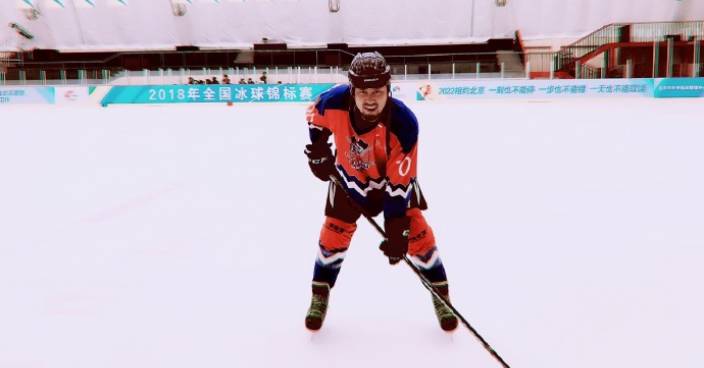At noon on December 6, Wang Yibo, coach of Tianjin Foreign Studies University's ice hockey team, wrote on social media: "I would like to thank all the team players for their hard work, spirit of never giving up and fighting to the last. Our greatest achievement in this tournament is the breakthrough from zero, when No. 33 Li Wenyi and No. 1 Cui Chengbo scored two goals. Comprising 10 girls and 11 boys, our team is relatively weaker than the others, some of which even have professional players. And these two goals encouraged us to train even harder in 2021, striving for a higher level of performance."
Wang was referring to the 2nd edition of the China University Hockey League (CUHL) held at the Beijing Aozhong Ice Sports Center. The Tianjin Foreign Studies University team lost 9-2 to Yantai University on December 6, ranking bottom among the six teams in the Open Group. These two precious goals are the first goals scored by TFSU, which has participated in this competition two years in a row.
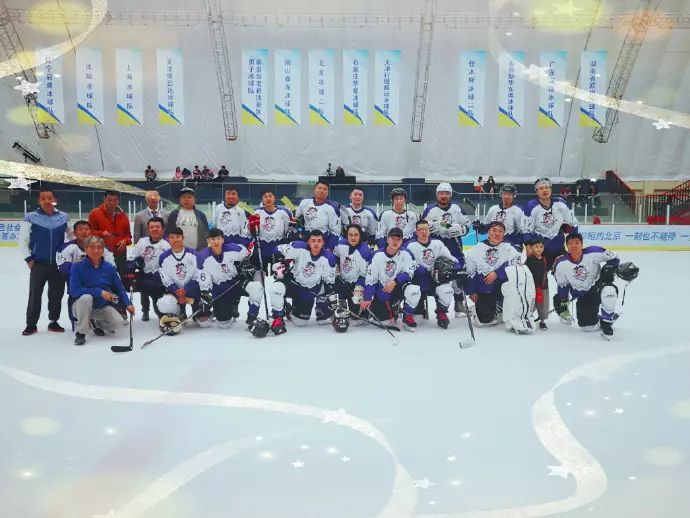
When reporters saw the team for the first time on the morning of December 4, they could not help but feel nervous for them. Compared with their opponents from Jilin Sports College, the TFSU players were much smaller in figure. Several players even fell on the ice during the warm-up. Not unexpectedly, JSC took the lead to score in the very first minute, and fired on full power throughout the game, winning by a landslide 20-0.
Much to everyone's surprise, the team was not upset after the game. "We love this game so much and did not pay much attention to the score," said Ju Xinyue, captain of the TFSU ice hockey team. "We are the only team from Tianjin and the only team from a foreign studies university. We hope to promote this game among university students. Almost half of our team are girls, and this spirit is incredibly admirable. Ice hockey is a demanding game because of the speed and contact, but we are not afraid of the pain. Many new members have joined us this year, and as captain, I hope they enjoy it."
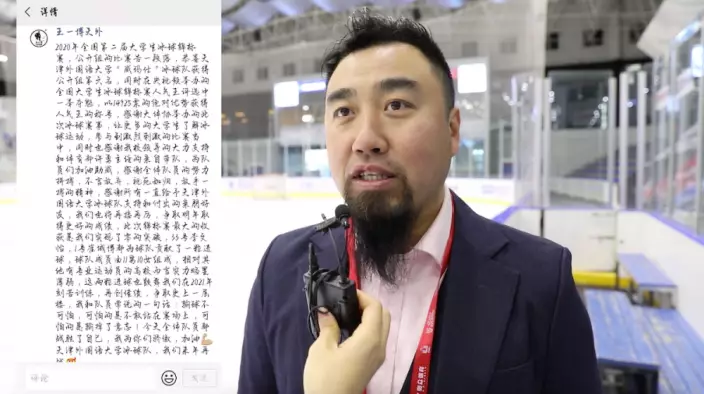
The TFSU ice hockey team was formed in September 2019, shortly before the CUHL came into being. This tournament is also the motivator for many other college teams to form. Coach Wang, who has a distinctive goatee, used to be a speed skater and came to Tianjin in his teens. But since there were few ice rinks, he turned to roller skating instead and became the coach for the national women's skating team. Led by Wang, the TFSU skating team twice won the national championship. In view of the approaching 2022 Beijing Winter Olympics and the 1st CUHL last year, Wang took the chance and started the hockey team.
"In my freshman year, I was very excited when I heard that our rollerskating teacher would start a hockey team. I have been interested in hockey since high school, but there was only a boys' team back then. Entering into university, this precious opportunity appeared all of a sudden. Though I never tried it before, I was eager to challenge myself. And I am also very sporty as I played for the school basketball team in junior and senior high schools," said captain Ju.
Thenceforth, a group of TFSU students who had never played ice hockey before started to follow Wang. The training field is two hours' drive from the school, so they could only practise on the ice rink once a week. COVID-19 also had a huge impact on them, leaving fewer training opportunities this year than the year before. Despite these unfavorable circumstances, the team remained enthusiastic for hockey and worked hard whenever they had a chance to practise. Ding Yi, a big male player, was attracted by the speed and passion of hockey. He is a Japanese major at TFSU who used to roller-skate as a child, and signed up immediately for the ice hockey team after finding out about it.
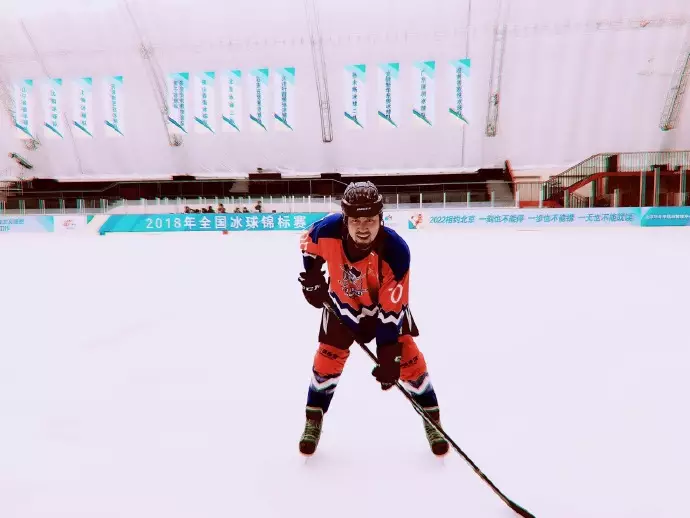
Ding said: "I was quite confident before I went onto the ice, and thought it was no big difference compared to roller skating. But it turned out to be a big mess. The first time I got onto the ice, I could not stand still or skate fast. We had to speed up from the two furthest ends and bump into each other. Gradually, I overcame my fear through this training and started to enjoy the process. Falling down is quite normal and we are all used to it. Now we have no burden to fall down, get up by ourselves, and continue to fight again."
It would have been more appropriate for TFSU to join the lower level Secondary Group. However, after studying the rules and regulations, coach Wang chose to sign up for the Open Group. It turned out that this competition features mixed play for both men and women. The Open Group allows a maximum of 10 female players while the Secondary Group only allows 5. To enable more girls to join in, Wang deliberately chose the more challenging group.
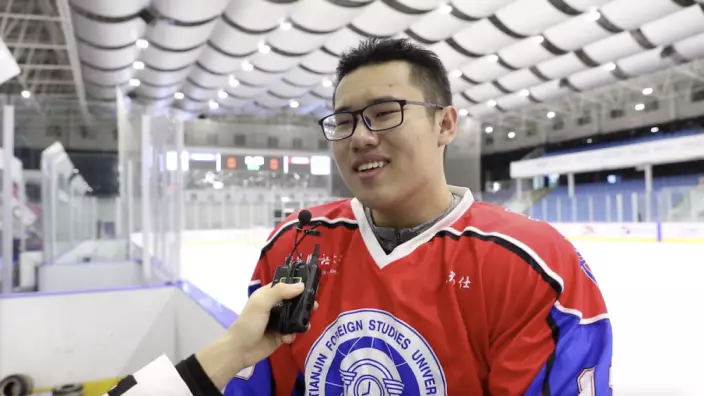
One of the team members
Though the team do not care much about winning or losing, none of them, be it the coach or the players, would keep a zero record. After losing 0-20 in the starting game on Friday, Wang said it would be difficult to win a game this year, but the team would try to get one goal. At that time, however, he did not sound very confident. In their second game later that day, TFSU lost 0-18 to Henan Polytechnic University. Fortunately, their big scoring moment came on the morning of December 6 in their final match.
This time, Wang appeared more confident. He said: "I always tell my team that the worst thing is never losing the game, but being afraid to step onto the battlefield, but losing our will! Today all of you have defeated yourselves. I feel proud of you! Come on TFSU ice hockey team! We will fight again next year!"


